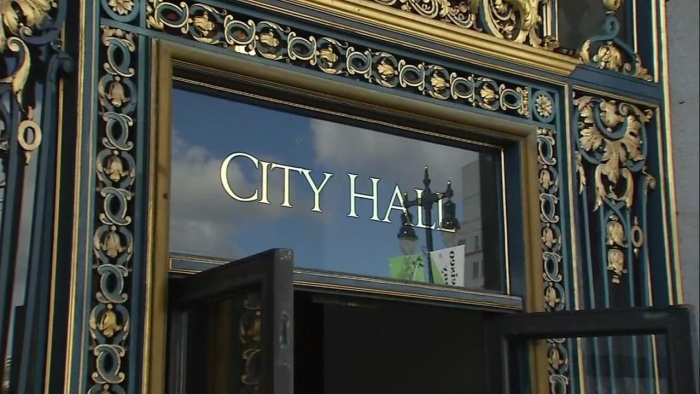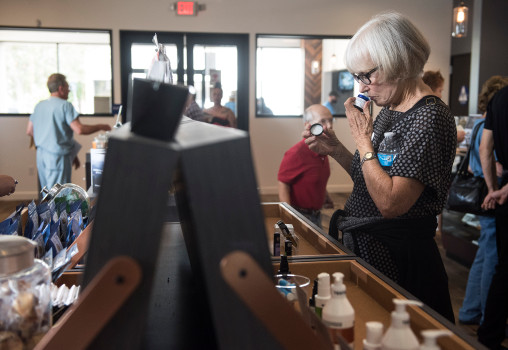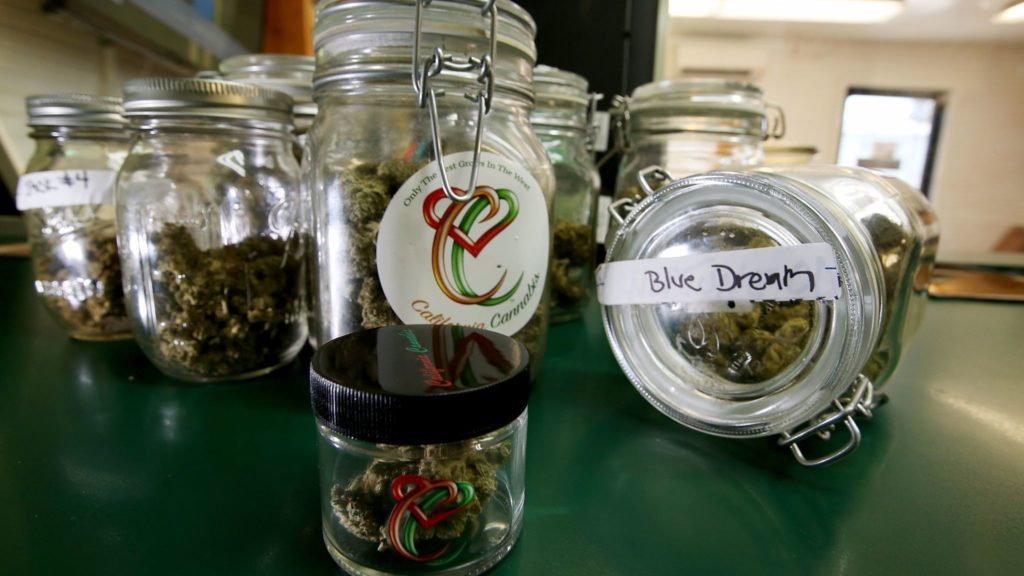California’s cannabis czar issued a cease and desist order to Weedmaps, directing the Irvine internet company that maps marijuana dispensaries to immediately stop promoting businesses that don’t have state licenses.
“You are aiding and abetting in violation of state cannabis laws,” states the letter from Lori Ajax, chief of the Bureau of Cannabis Control.
If the company doesn’t immediately drop advertisements for unlicensed businesses, Ajax said Weedmaps could face criminal and civil penalties, including civil fines for each illegal ad.
The warning is the only cease and desist letter sent by the state to an advertising company, according to bureau spokesman Alex Traverso. But it’s one of more than 900 such letters sent by his agency to unlicensed marijuana businesses since recreational weed sales were allowed to start and licensing requirements kicked in Jan. 1.
Traverso said many of those 900-plus black market shops were discovered on Weedmaps.
Tustin resident Justin Hartfield founded Weedmaps in 2007 with company CEO Doug Francis. The site and its app help visitors find dispensaries and browse their menus, with shops rated much like other businesses are rated on Yelp.
Weedmaps has grown into an international juggernaut, with offices from Denver to Berlin. But much of that business has been built on ad revenue from unlicensed dispensaries.
For example, on Wednesday, the app included 20 ads for marijuana dispensaries in Anaheim, even though all cannabis businesses are banned in that city.
Weedmaps didn’t immediately respond to a request for comment on the letter. But during a February interview, company president Christopher Beals remained defiant on the issue of accepting ads from black market shops.
“The thing is, at the end of the day, we’re an information platform,” Beals said. “We’re showing the same information that Google and Yelp and Craigslist and 30 other websites are showing.”
Beals said he believes it’s up to states and cities to put in a solid regulatory framework and to permit enough licensed marijuana businesses to meet demand. That’s the only way to control the illegal market, he said.
“To sort of say, ‘Let’s pretend an illegal market doesn’t exist’ or that people can’t just type ‘dispensary’ into Google and find this information… isn’t really realistic.”
“The California state government has made clear that only licensed retailers and delivery services may advertise via technology platforms,” stated a Feb. 7 press release from Leafly announcing the decision.
Ajax sent Weedmaps the cease and desist letter on Feb. 16. Industry news site Marijuana Business Daily first reported the news Wednesday.
The letter explains that, under Senate Bill 94, any ads for marijuana retailers must include a California license number showing they’re permitted by state and local authorities. The number also ensures that, when regulations are fully in place later this year, all cannabis sold by that retailer has been tested for safety, properly labeled and more.
“This differs in no way than requiring a contractor to list their state contractor’s license number or a real estate broker to list their license number,” said Aaron Herzberg, a cannabis industry attorney who’s part owner of two licensed shops in Santa Ana.
Herzberg pushed to have the advertising language written into state law after personally seeing how difficult it was for legal shops to compete with the gray market while companies like Weedmaps made no attempt to help shoppers distinguish between the two.
“We’re starting to see more and more licensed cannabis businesses that invest millions of dollars and go through the process to do things the right way and to pay their taxes — which they have to pay a lot of — those businesses are demanding that individuals who don’t follow the law be put out of business,” Herzberg said.
Of the more than 900 cease and desist letters sent to California businesses, Traverso said around 375 were in response to complaints his agency has received.
Herzberg sees the lack of compliance by Weedmaps as ironic, considering the Irvine company was one of the biggest financial backers of legalizing and regulating marijuana in California through Proposition 64. The company also supports regulation efforts throughout the country and overseas.
Before Prop. 64 fully kicked in Jan. 1, Herzberg said Weedmaps may have had somewhat of a leg to stand on, since there was no licensing system in place to readily distinguish between illegal shops and dispensaries that were arguably allowed under California’s medical marijuana laws.
That’s akin to the argument used in the past by companies like Backpage.com when it was pressured to police prostitution rings using its website to front as escort services.
But now that all marijuana businesses in California are required to provide their state license numbers, Herzberg said the only justification for continuing to run ads without them would seem to be a financial one.
“I think that Weedmaps is being a very poor corporate citizen,” he said. “It just undermines under the system of regulation that Weedmaps was a proponent for in the first place.”
Sacramento officials also wrote a letter in early February calling for both Weedmaps and local newspaper Sacramento News & Review to stop promoting unpermitted shops in their city, the Sacramento Business Journal reported.
A city official there told Marijuana Business Daily that they hadn’t heard back from the company as of Wednesday.
Ajax has said that her agency planned to give companies time to adjust to the state’s new marijuana laws before it started enforcement proceedings.
“As of right now, like with the unlicensed operators, we’re communicating with Weedmaps,” Traverso said. “There is no immediate action planned.”
In the meantime, it looks like business as usual at Weedmaps.com, with hundreds of dispensaries listed throughout the state even though our database of local policiesshows they’re permitted in fewer than 20 percent of California cities.
credit:420intel.com













